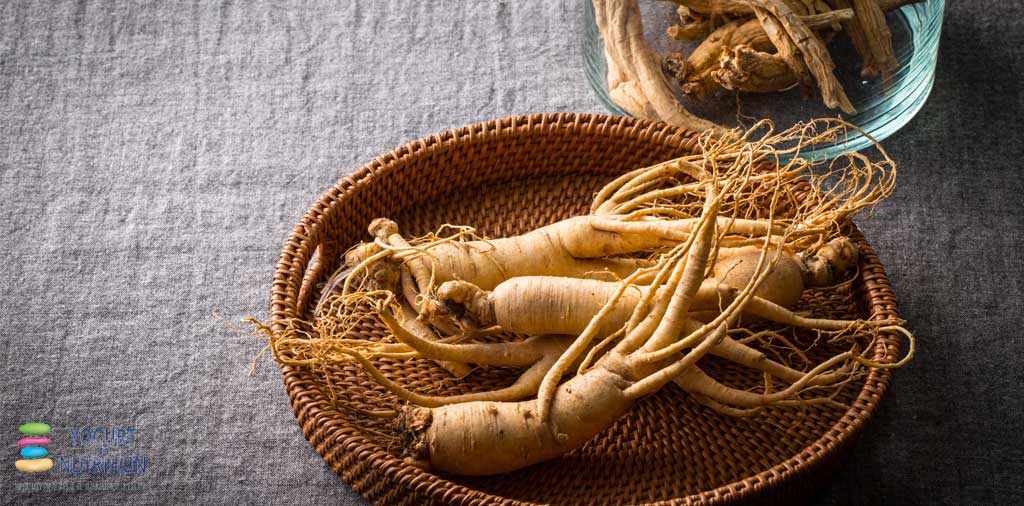Yogurt and other dairy products are well-known for their healthy cocktail of nutrients. But adding ginseng to yogurt or milk may provide a way of boosting their health benefits even further, this latest study suggests. That’s because it appears to strengthen the antioxidant component of the dairy products, the authors say.
Dairy products provide a great vehicle for delivering extra ingredients in our diet and as such can be considered functional foods, providing additional benefit that may promote our health or prevent disease. For example, yogurt can be enriched with probiotics, and milk may have vitamins or omega-3 added to it.
And we’re increasingly seeing in our shops dairy products containing natural flavourings such as herbs and fruits. These products may contain phenols and polyphenols – compounds extracted from plants and easily dissolved in milk. These compounds are good sources of natural antioxidants and are important for preventing chronic diseases including vascular disease, cancer, and Alzheimer’s disease, say the authors.
Ginseng: a good choice for adding to yogurt or milk
The authors identified ginseng as another good candidate for supplementing dairy products. Red ginseng is a popular health remedy traditionally used to refresh and enhance wellbeing.
It’s made by steaming the root of the plant, a process that increases its content of a chemical called saponin which has anti-cancer, anti-diabetes, and anti-hypertensive effects. It also appears to protect smokers from oxidative damage and reduce their risk of smoking-related cancer, say the authors.
They investigated whether dairy products supplemented with red ginseng could provide greater antioxidant effects and potentially greater protection against cancer than dairy products without the added ginseng.
They added red ginseng extract to milk and yogurt and analysed the mixtures using several antioxidant assays. They also used a technique for finding DNA damage, as a measure of the dairy product’s ability to counter genotoxic effects – those caused by chemicals that damage cells’ genetic information causing mutations, which may lead to cancer.
Yogurt with ginseng had the highest antioxidant content
Their results revealed that the dairy products supplemented with red ginseng contained more phenols than the non-supplemented dairy products. The highest amount of polyphenols were found in the supplemented yogurt, while the milk without the added ginseng had the lowest content of polyphenols. The supplemented milk contained the most flavonoid, another powerful antioxidant.
Yogurt and milk with added ginseng showed increased antioxidant activity
The results also suggest that the supplemented yogurt and milk had higher antioxidant effects that the regular yogurt and milk that didn’t contain ginseng, and these effects were seen at all concentrations tested. This is in line with previous research suggesting that herbal yogurt has higher antioxidant activity than plain yogurt.
Protection against damage to our DNA
The authors also found a possible protective effect of the ginseng supplement against DNA damage induced in their test – there was less DNA damage in the ginseng-supplemented yogurt than in the regular yogurt, although no marked difference was seen between the supplemented and regular milk.
The authors conclude that enriching dairy products with red ginseng holds promise for providing health benefits because of the high antioxidant activity.
‘Thus, dairy products supplemented with red ginseng might be a promising natural source of antioxidants and could be used for the development of value-added products, such as functional dairy products.’ – Park H et al, 2018.



